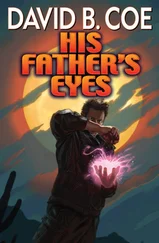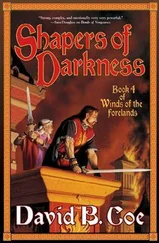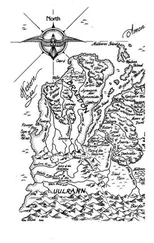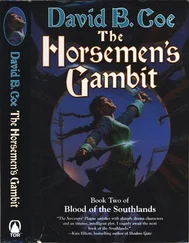Jonathan Coe - Number 11
Здесь есть возможность читать онлайн «Jonathan Coe - Number 11» весь текст электронной книги совершенно бесплатно (целиком полную версию без сокращений). В некоторых случаях можно слушать аудио, скачать через торрент в формате fb2 и присутствует краткое содержание. Год выпуска: 2015, Издательство: Penguin, Жанр: Современная проза, на английском языке. Описание произведения, (предисловие) а так же отзывы посетителей доступны на портале библиотеки ЛибКат.
- Название:Number 11
- Автор:
- Издательство:Penguin
- Жанр:
- Год:2015
- ISBN:нет данных
- Рейтинг книги:4 / 5. Голосов: 1
-
Избранное:Добавить в избранное
- Отзывы:
-
Ваша оценка:
- 80
- 1
- 2
- 3
- 4
- 5
Number 11: краткое содержание, описание и аннотация
Предлагаем к чтению аннотацию, описание, краткое содержание или предисловие (зависит от того, что написал сам автор книги «Number 11»). Если вы не нашли необходимую информацию о книге — напишите в комментариях, мы постараемся отыскать её.
It's about the legacy of war and the end of innocence.
It's about how comedy and politics are battling it out and comedy might have won.
It's about how 140 characters can make fools of us all.
It's about living in a city where bankers need cinemas in their basements and others need food banks down the street.
It is Jonathan Coe doing what he does best — showing us how we live now.
Number 11 — читать онлайн бесплатно полную книгу (весь текст) целиком
Ниже представлен текст книги, разбитый по страницам. Система сохранения места последней прочитанной страницы, позволяет с удобством читать онлайн бесплатно книгу «Number 11», без необходимости каждый раз заново искать на чём Вы остановились. Поставьте закладку, и сможете в любой момент перейти на страницу, на которой закончили чтение.
Интервал:
Закладка:
Jonathan Coe
Number 11
In memory of
David Nobbs,
who showed me the way
‘Because there comes a point, you know, Michael’ — he leaned forward and pointed at him with the syringe — ‘there comes a point, where greed and madness become practically indistinguishable. One and the same thing, you might almost say. And there comes another point, where the willingness to tolerate greed, and to live alongside it, and even to assist it, becomes a sort of madness too.’
Jonathan Coe, What a Carve Up! (1994)Tony Blair, addressing the US Congress, 17 July 2003:
‘In another part of our globe, there is shadow and darkness’THE BLACK TOWER
1
The round tower soared up, black and glistening, against the slate grey of a late-October sky. As Rachel and her brother walked towards it across the moor, from the east, it was framed by two leafless, skeletal ash trees. It was the hour before dusk on a windless afternoon. When they reached the trees, they would be able to rest on the bench that stood between them, and look back towards Beverley in the near distance, the neat clusters of houses and, rising up in the midst of them, the monumental, answering greyish-cream towers of the Minster.
Nicholas flopped down on the bench. Rachel — then only six years old, eight years his junior — did not join him: she was impatient to run up towards the black tower, to get close to it. She left her brother to his rest and scurried onwards, squelching her way through the cow-trodden mud that surrounded the foot of the tower until she was right up against it, and could lay her hands upon the gleaming black brickwork. The flat of both hands upon the tower, she looked upwards and could not comprehend the size and scale of it, the perfect, lucid curve as it arched itself, like a sway back, against a threatening sky through which a pair of rooks were now skimming, cawing and circling endlessly.
‘What did it use to be?’ she asked.
Nicholas had joined her now. He shrugged.
‘Dunno. Some kind of windmill, maybe.’
‘Do you think we could get inside?’
‘It’s all bricked up.’
There was a circular wooden bench running all around the base of the tower, and when Nicholas sat there, Rachel sat beside him and stared up into his pale, unresponsive blue eyes, which for all their coldness only made her feel how lucky she was, how blessed, to have an older brother like this, so handsome and confident. She hoped that one day her hair would be as blonde as his, her mouth as shapely, her skin as downy and clear. She nestled against his shoulder, as close as she dared. She didn’t want to be a drag upon him, didn’t want him to become too aware that, in this strange and unfamiliar town, he was the only thing that made her feel safe.
‘You cold or something?’ he asked, looking down at her.
‘A bit.’ She inched away slightly. ‘Will it be warm where they are, d’you think?’
‘’Course it will. There’d be no point going on holiday somewhere where it’s cold, would there?’
‘I wish they’d taken us with them,’ said Rachel feelingly.
‘Well, they didn’t. So that’s that.’
They sat for a few moments in silence: each of them, once again, trying to wrestle as best they could with the conundrum of why their parents should have chosen to go away for half-term without them. Then, as soon as the cold started to bite, Nicholas jumped to his feet.
‘Come on,’ he said. ‘Are we going to look at this cathedral before it gets dark?’
‘It’s a minster, not a cathedral,’ said Rachel.
‘Same difference. It’ll just be a big old church, whatever you call it.’
He set off quickly, with Rachel running up behind him in an effort to keep pace, but before they had got very far along the path back to the main road, they were halted in their tracks by the sight of two people approaching them in the distance. One of them was in a wheelchair: it appeared to be an old, old woman, swaddled against the afternoon chill by layer upon layer of thick woollen blankets. Her features were scarcely visible: her head was bowed, drooping tiredly, and she was wearing a silk headscarf which screened most of her face from view. In fact, the longer the children looked at her, the more likely it appeared that she was fast asleep. Her chair was being trundled roughly along the path, meanwhile, by a young-looking man wearing motorcycle leathers and balancing something on his left forearm as he pushed. The something could not, at first, be identified: but as the figures came closer, it looked as though it might — however implausible this seemed — be some sort of bird; a suspicion which was then suddenly and dramatically confirmed when the creature spread its wings to an amazing width, and flapped them languidly, in black silhouette against the grey sky — looking, at that moment, more like some fantastical hybrid creature from mythology than any real bird Rachel could remember having seen before.
Nicholas did not move, and as Rachel stood beside him she clasped his hand, relishing his weak responsive grip, sensing the coldness of his bare hand even through the prickly thickness of her woollen mittens. Unsure what to do next, they watched as the man in leathers settled the wheelchair in place and then spoke a few words to the bird, which reacted by hopping obediently from his arm to one of the chair’s handles. With both arms free now, the man busied himself making sure the old lady in his charge was warm and comfortable, adjusting her blankets and tucking them in around her ever more snugly. Then he turned his attention to the bird.
Rachel inched forward, trying to pull her brother with her.
‘What are you doing?’
‘I thought you wanted to get on.’
‘I do. But I’m not sure that it’s safe.’
The man had taken out a length of twine with something attached to the far end, and had begun to swing it around his head in long, slow, circling movements. There was no traffic on the main road at the moment, and the afternoon was so still that the two children could clearly hear the regular heavy SWUSH of the twine as it swept through the air. They could even hear the beating of the kestrel’s wings (it was clear that it was a kestrel now) as she took off in pursuit of the lure, training herself on the lump of meat at the end of the twine with lethal accuracy, and yet always just missing it, as the man swung it out of her reach in glorious, repeated feats of strength and timing. Every time the bird missed the meat she would dip, swoop lower and then climb steeply again, pushing swiftly up into the sky until she reached the limit of her parabola, hung suspended there for the briefest of moments, whirled and then dived again, rushing down towards the coveted lump of meat with preternatural speed and precision, only to have it snatched from her questing beak at the last possible instant.
After this exhilarating ritual had been performed two or three times, Nicholas and Rachel began to move forward cautiously. The man was standing slap in the centre of the path as he swung the lure about his head, so that they found it necessary to deviate from the track a little — at least far enough to stay out of the way of the circling twine. But this was not good enough for the falconer, who, without taking his eyes off the bird for a second, shouted at them in a voice filled with fury:
‘Keep out of the way, can’t you? Keep out the bloody way!’
But it wasn’t the note of anger that surprised the children. It was the pitch of the voice: high, shrill and unmistakably feminine. And now that they were only a few yards from the taut, concentrated figure in motorcycle leathers, their mistake was obvious. It was a woman: a woman of around thirty-five, perhaps, although neither of them was very good at guessing the age of grown-ups. Her face was pale, her cheeks pinched and sunken, her hair shaved down to a severe and uncompromising crew cut. Her ears and nose were pierced and decorated with multiple silver rings and studs. A livid, dark blue-green tattoo of some indeterminate shape seemed to cover most of her neck and throat. She was the most terrifying woman, without a doubt, that Rachel had ever seen. Even Nicholas seemed taken aback. And if her appearance was not startling enough, there was the rising note of rage in her voice at the temerity, the insolence of these children for encroaching upon what she must have felt to be her own and the bird’s territory. ‘Go on! Piss off!’ she shouted. ‘Keep out the way! Use some bloody sense!’
Читать дальшеИнтервал:
Закладка:
Похожие книги на «Number 11»
Представляем Вашему вниманию похожие книги на «Number 11» списком для выбора. Мы отобрали схожую по названию и смыслу литературу в надежде предоставить читателям больше вариантов отыскать новые, интересные, ещё непрочитанные произведения.
Обсуждение, отзывы о книге «Number 11» и просто собственные мнения читателей. Оставьте ваши комментарии, напишите, что Вы думаете о произведении, его смысле или главных героях. Укажите что конкретно понравилось, а что нет, и почему Вы так считаете.












